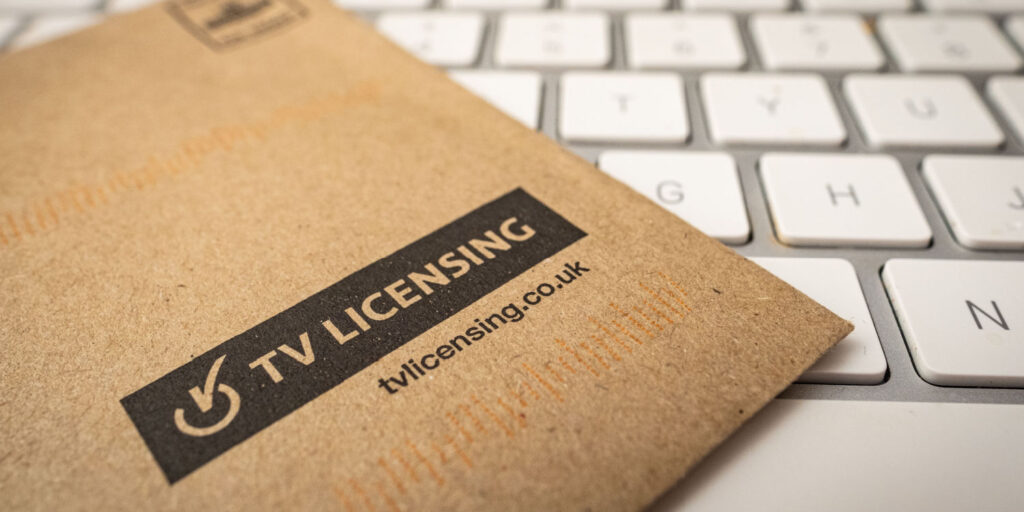Forming your company is the first step to doing business, but sometimes, depending on your chosen industry, there are still a few hurdles that you need to navigate before you can start trading. In this post, we focus on one of these hurdles – business licences.
What is a business licence?
A driving licence lets you drive. A flying licence lets you fly. A business licence lets you…you guessed it, do business. Okay, that’s an oversimplification.
There is not one business licence that lets you ‘do business’. Different activities require different licences, and they’re not always referred to as ‘licences’ – sometimes they’re simply permits or fees that need paying.
The purpose of a business licence is to provide protection to the consumer. A licence indicates that the business/person in question knows what they are doing, they are working within a specific legal framework and can be deemed ‘safe’.
Typically, licences are issued by the government, a local authority or a professional body.
Failure to hold the necessary licences can result in a large penalty and sometimes a criminal conviction, so it’s imperative that you check what licences you need before you start any trading activity.
General qualifications and compliance regulations
It’s important to highlight that a business licence should not be confused with a qualification.
For example, to qualify as a dentist, you need to complete a dental course that ultimately culminates in a bachelor’s degree. However, to set up a dental practice, you will need a number of business licences. In this post, we will focus on the licences, not the qualifications.
Also, acquiring the necessary business licences is just one facet of running your business compliantly.
You still need to ensure that you meet your tax requirements, adhere to employment laws, and take care of any other filing obligations, such as filing annual accounts and a confirmation statement if you’re operating as a limited company.
Licences that your business may need
Before we look at specific industries, here are some of the general licences/permits that are applicable to a large number of businesses.
Notification to process personal data
Will your business be electronically processing personal information for your customers and/or employees?
If the answer is yes, you will need to pay an annual data protection fee to the Information Commissioner’s Office (ICO). The cost of this depends on the size of your company, with it starting at £40 per year and going up to £2,900. Not sure if your business qualifies?
Read our blog on the topic; Do I need to pay the ICO data protection fee?
Public space surveillance (CCTV) licence
If your business is operating from premises where employees work and members of the public visit, you’ll probably want to install a CCTV system for security purposes.
To do this you will need a licence from the Security Industry Authority (SIA), with the application fee costing £190.
TheMusicLicence
Whether you’re playing music from the radio, a CD or a steaming service – if you have music on for your staff and/or customers in your business premises, you will need a licence from PPL PRS. The price of the licence depends on the sector in which you are working. Take a look at the PPL PRS website for more information.
TV Licence
Just like at home, if you have a television set at your business premises that’s used to watch live TV (on any channel, including live TV on streaming services), you will need a TV Licence. The TV Licence costs £159.
Business licence examples
It’s common for a business to need more than one licence type.
Here are some examples of business types and the licences you may need to run such an operation.
See the links for more information on each licence. You may need to provide information relating to your location as, as you would expect – the requirements differ throughout the UK.
As you will see, some of the business licences are very specific so will not necessarily apply to you.
Do you want to open a pop-up food stall?
If you intend to:
- Have an advertising board on a pavement
- Prepare and sell food
- Provide public refreshments between 10pm – 5am
- Put up tables and chairs on a pavement
- Run a market stall
- Sell alcoholic drinks
- Trade on the street
You may need the following licences:
- Discharge of trade effluent
- Food business registration
- Food premises approval
- Market stall licence
- Pavement or street display licence
- Permission to place tables and chairs on the pavement
- Personal licence to sell alcohol
- Premises licence
- Street trading licence
- Temporary Events Notice
Do you want to provide fitness training services?
If you intend to:
- Hold an ad hoc event
- Hold an outdoor event where an entrance fee is payable
- Organise public sporting events
- Play background music
- Process personal information about any individuals
You may need the following licences:
Do you want to open your own hair and beauty salon?
If you intend to:
- Employ young people aged 13 – 16
- Offer special treatments such as chiropody
- Offer special treatments such as massage, beauty treatments
- Operate as a hairdresser
- Play background music
- Process personal information about any individuals
- Put an advertising board on the pavement
- Use CCTV systems
You may need the following licences:
- Child work permit
- Hairdresser registration
- Licence to play background music
- Massage and special treatments premises licence
- Massage and special treatments, therapist registration
- Notification to process personal data
- Pavement or street display licence
- Public space surveillance (CCTV) licence
- Voluntary registration as state-registered hairdresser
Do you want to start a film production business?
If you intend to:
- Employ child actors, performers or models
- Make copies of a musical work onto any recorded media, e.g. CDs, DVDs or karaoke products
- Produce films, radio or television programmes
- Provide commercial television services
- Store, process, use or dispose of celluloid film
- Use CCTV systems
- Use copyrighted music in television programmes
- Use copyrighted music online or on mobile technology
- Use music for broadcast or download, including TV or Radio programmes, online, in toys, ringtones, computer games, etc.
- Use or provide for use a television or other device to receive or record broadcast programmes
You may need the following licences:
- Child performance licence
- Licence to use music on the radio
- Licences to use music on television
- Licences to use music online or on mobile technology
- Music licences for physical products
- Notification to process personal data
- Public space surveillance (CCTV) licence
- TV broadcast licence
- TV Licence
Do you want to open a marketing agency?
If you intend to:
- Distribute free printed material
- Make copies of a musical work onto any recorded media, e.g. CDs, DVDs or karaoke products
- Make copies of extracts from books, magazines or journals for business use
- Play background music in your premises
- Process personal information about any individuals
- Use CCTV systems
- Use a piece of artwork in a book, magazine, website, advertisement, or on a greeting card or textile
You may need the following licences:
- Copyright Licensing Agency licence
- Licence to play background music
- Notification to process personal data
- Permission to distribute leaflets
- Public space surveillance (CCTV) licence
Do you want to trade as a plumber?
If you intend to:
- Carry out any work involving asbestos
- Carry out construction or building work
- Install or work on gas appliances or fittings
- Possess or use equipment which may contain Polychlorinated Biphenyls (PCBs)
- Process personal information about any individuals
You may need the following licences:
- Competence to self-certify building work registration
- Discharge of trade effluent
- Licence to work with asbestos
- Notification to process personal data
- Register to carry out gas work
- Scheduled monument consent
Find the business licence(s) you need
GOV.UK’s free ‘licence finder’ tool is quick and simple to use. All you need to do is enter your industry, or choose from the pre-selected options, and then work your way through the online questionnaire, stating what your business will (and won’t) be doing, and your location. You will then be presented with the licences you may need.
Alternatively, you are welcome to leave a comment on this post and we’ll happily give you guidance on the licences that you may need.
How do I apply for a business licence?
This really depends on the type of licence that you are applying for (as does the cost of the licence).
Some licence providers offer online applications, while others require you to seek out a necessary contact within a local authority. If in doubt, the best place to start is to complete an online search on the licence you are looking for.
When doing this, be cautious of using third-party application sites, as you may end up paying more than you actually need to.
Thanks for reading
We hope you have found this post helpful.
Whilst seeking out and applying for the necessary business licences may initially seem a pain, remember – they are in place to protect your clients, and ultimately will demonstrate to anyone using your service that you take your responsibilities seriously.
We hope you have found this post helpful. Please leave a comment if you have any questions.
Please note that the information provided in this article is for general informational purposes only and does not constitute legal, tax, or professional advice. While our aim is that the content is accurate and up to date, it should not be relied upon as a substitute for tailored advice from qualified professionals. We strongly recommend that you seek independent legal and tax advice specific to your circumstances before acting on any information contained in this article. We accept no responsibility or liability for any loss or damage that may result from your reliance on the information provided in this article. Use of the information contained in this article is entirely at your own risk.














Join The Discussion
Comments (10)
I just set up my company a few days ago and its being incorporated, I’m trying to register with world first bank and they asked me for company license, My business is like following
63120 – Web portals
82200 – Activities of call centres
82990 – Other business support service activities n.e.c.
where could I get my business license ?
Thanks in advance
Dear Moamen,
Thank you for reaching out.
As there are many variations of business licenses depending on activity, we would not be able to assist directly. Our only suggestion is to go back to the bank to ask for a specific document they are looking for. Once you have this, do let us know if we can provide any assistance.
Kind regards,
The 1st Formations Team
Hello
I have a company in the UK whose activity is TaxiCab Network. Does this activity have licenses from government agencies in the UK?
Hi Moosa,
Thank you for your comment. Yes, vehicle and driver licences are required for taxis and private hire vehicles. We would recommend taking a look at the gov.uk website for more information:
https://www.gov.uk/operator-licence-private-hire-vehicle
https://www.gov.uk/taxi-vehicle-licence
Kind regards,
The 1st Formations Team
If I wanted to set up a food truck company that involves selling at fixed locations in different parts of the country, would I need to get local authority licenses for each different council or is there a fits all approach, for ease?
Thank you for your kind enquiry, Angus.
A food business must register with the local authority in each place it is located. There is no ‘fits all approach’ for this. You should be aware that not registering your food business with the appropriate local authority could lead to a fine or up to 2 years imprisonment (or both).
We trust this information is of use to you.
Kind regards,
The 1st Formations Team
Wow this has been so useful, thank you!
Thank you for your kind words, we’re glad you found this article to be informative.
Kind regards,
The 1st Formations Team
Wow this has been so useful, thank you!
We’re pleased you found this article to be of use, Ruby.
Kind regards,
The 1st Formations Team